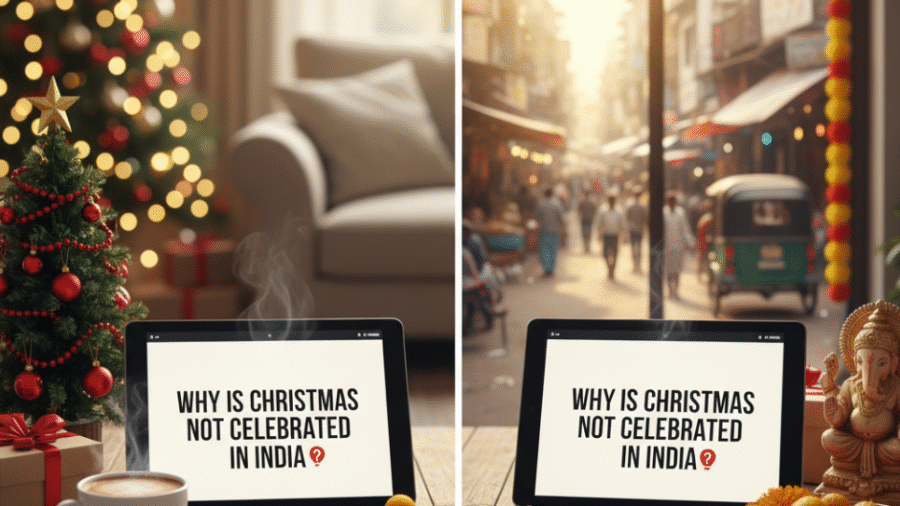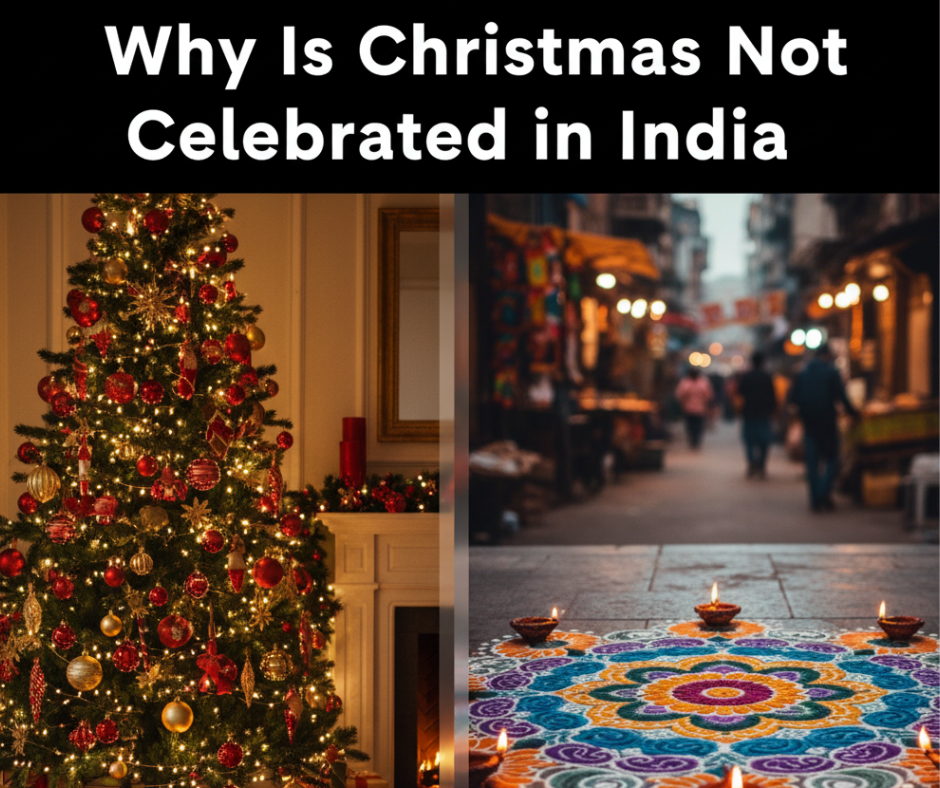Christmas is one of the most widely celebrated holidays globally, yet its observance in India varies significantly across regions and communities. Despite India being home to a sizeable Christian minority, Christmas is not universally embraced or celebrated with the same intensity seen in Western countries. This discrepancy raises a common question: Why is Christmas not celebrated in India by everyone?
In this detailed article, we explore the historical, religious, cultural, and social factors influencing Christmas celebrations (or lack thereof) in India, highlighting the diverse landscape of Indian festive traditions.
Demographics and Religious Composition of India
India is renowned for its religious diversity. According to the 2021 Census:
-
Hinduism is the majority religion, practiced by approximately 80% of the population.
-
Islam is the second-largest religion, with roughly 14%.
-
Christianity accounts for about 2.3% of the population, concentrated in specific states and regions.
-
Other religions include Sikhism, Buddhism, Jainism, and indigenous tribal faiths.
Given Christianity’s minority status, Christmas naturally remains a regional and community-specific celebration rather than a national cultural event.
Historical Origins of Christianity and Christmas in India
Christianity in India dates back to antiquity, with traditions crediting the arrival of St. Thomas the Apostle in the 1st century CE, spreading Christianity primarily in Kerala and parts of the Northeast.
-
Christmas traditions took root mainly within these Christian communities and urban centers influenced by European colonization.
-
British colonial rule also introduced Western-style Christmas customs and public festivities.
-
However, unlike in Christian-majority countries, Christmas remained confined largely to Christian populations and sympathetic communities.
Religious Reasons for Limited Christmas Observance
Christmas is a Christian religious festival celebrating the birth of Jesus Christ, a central figure in Christianity. Non-Christian religious groups in India—Hindus, Muslims, Sikhs, Buddhists, and others—generally do not observe Christian holidays due to theological differences and distinct religious calendars.
-
Hinduism, Islam, Sikhism, Buddhism, and Jainism have their unique holy days and festivals, often with deep spiritual and cultural significance.
-
These religions do not recognize Christmas as part of their religious or cultural framework, explaining the limited celebration outside Christian groups.
Cultural Diversity and Regional Variations in India
India’s vast cultural mosaic also influences how and where Christmas is celebrated:
-
States with Significant Christian Populations: Kerala, Goa, Northeastern states like Nagaland, Mizoram, and Meghalaya have vibrant Christmas celebrations including public holidays, special services, and cultural festivities.
-
Urban Centers and International Influence: Cities like Mumbai, Kolkata, Chennai, and Delhi see widespread Christmas decorations, lights, and public events driven by cosmopolitan populations and commercial interests.
-
Other Regions: In many rural and non-Christian areas, Christmas passes without significant recognition, overshadowed by local festivals and traditions.
Commercialization and Secular Celebrations
Christmas in Indian metropolitan areas often adopts a secular and commercial aspect, celebrated widely by people irrespective of religious background.
-
Malls, hotels, and public spaces host Christmas events, displays, and sales.
-
Schools and workplaces might organize parties and decorate for Christmas.
-
These activities attract participation from diverse communities as a festive cultural event, not necessarily a religious one.
Hence, Christmas’s prominence varies widely depending on locality, social setting, and exposure to global customs.
Social and Political Factors Affecting Christmas Celebrations
-
Minority Status and Majority Sensitivities: Christians being a minority means Christmas is not a national holiday in all states and is more localized.
-
Diversity of Religious Holidays: India’s calendar is rich with regionally influential festivals like Diwali, Eid, Holi, Pongal, and Navratri which dominate cultural life.
-
Political Considerations: At times, religious or political tensions may discourage overt Christian religious celebrations in mixed or sensitive regions.
How Indian Christians Celebrate Christmas
Indian Christians maintain rich and distinctive Christmas traditions:
-
Midnight Mass: Special church services on Christmas Eve are central to celebrations.
-
Feasting and Family Gatherings: Traditional meals and sweets are shared.
-
Caroling and Nativity Plays: Churches and communities enact the Christmas story and sing carols.
-
Decorations: Homes, churches, and streets adorned with lights, stars, and nativity scenes.
-
Social Outreach: Charity and community programs coincide with Christmas spirit.
These celebrations are vibrant and heartfelt where Christianity has historical roots.
Read More: What Is the History of the Christmas Tree? From Ancient Traditions to Modern Celebrations
Conclusion: Celebrating Diversity in India
Christmas is not celebrated uniformly across India due to religious differences, demographic realities, cultural diversity, and regional traditions. While it remains a joyous, meaningful holiday for Indian Christians and an emerging cultural festival in urban areas, vast parts of India observe Christmas minimally or not at all in religious terms.
Understanding this helps appreciate India’s pluralistic society where festivals coexist peacefully, reflecting India’s motto of unity in diversity.



Add a Comment